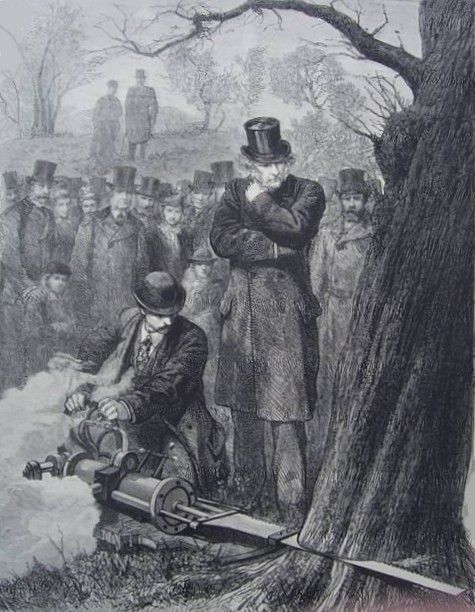Former Attorney General Thomas F. Reilly scolded Holland selectboard for by-law change restricting farm activities.
A document newly optained by the Holland Blog reveals that former Attorney General Thomas F. Reilly scolded the members of the Board of Selectmen for skewing rights given to all the people of the Commonwealth under its Constitution. The letter mailed from the Attorney General’s Office addressed to the Town of Holland states:[W]e caution the town that the Laws and Constitution of the Commonwealth have recognized the importance of agriculture and agricultural uses within the state. Article 97 of the Massachusetts Constitution declares that the protection of people in their right to the utilization of agricultural resources is a public purpose in the Commonwealth. Moreover, there are numerous state laws and regulations that preclude agricultural uses from restriction by local legislation.See page 2 of letter.
The letter from the Attorney General’s office further states:
“Farming” or “agricultrure” shall include farming in all of its branches . . . and any forestry or lumbering operations, performed by a farmer. . .”See page 4 of letter.
LaMountain was also attacked for moving earth as Wettlaufer sees this activity consistent with activities of a developer and not a farmer. The former AG Reilly addressed this issue in his letter stating:
Depending on the circumstances, earth removal activities may qualify as normal and customary maintenance and improvement of agricultural land. Earth removal may be necessary for a number of aagricultural purposes, e.g., leveling of land for growing areas and preparing land for farm structures. In those instances, it would be inconsistent with G.L. c.40A, s.3, to prohibit such earth removal activities. Thus, we remind the town to apply the Schedule of Principle Uses in a manner consistent with the protections accorded to agriculture under state law.Emphasis added by the writer. See page 4 of letter.
Attorney General (AG) Reilly foresaw the potential that the town would apply its bylaws in a discriminatory way, inconsistent with the General Laws and the Constitution of the Commonwealth.
On page three, the letter states:
It would be inconsistent with state law for the by-law to be applied so as to prohibit or require a special permit for riding stables, piggeries or fur farms that enjoy the protection accorded under G.L. c.40A, s.3.On page four of the letter, the AG’s letter further states:
[W]e caution the town that G.L. c.40A s.3, prohibits discrimination against disabled persons ...To read the letter click on any italic/bold word letter.
The fact that proposed by-law changes provoke this kind of response by the Attorney General’s Office is telling!
You don’t need to be a rocket scientist to figure out that such “borderline legal” by-laws have a high potential to lead to endless lawsuits paid for by the taxpayer.
In the hands of individuals like Johnson and Wettlaufer such by-laws are a “guarantee” for lawsuits.

You may wonder about the significance of the picture here.
This coming Friday February 26, the “experts” will convene again in Superior court in Springfield. Super-lawyer Tani Sapirstein will travel from Worcester for the forth time in less then a month on behalf of the town’s quest to prove LaMountain ain’t no farmer.
Yes, you are right, the question was decided in the affirmative in the Housing Court by judge Fein who’s ruling was, LaMountain IS A FARMER AFTER ALL!
Yes, you are right again; once a question is adjudicated the parties have to live with it, the rule is called “res judicata.”
It is just that one of Wettlaufer’s high paid Super-Lawyers (paid for with your money...) somehow figured out that Northeast Concepts Inc. was not a party to the proceedings in the Housing Court, hence Wettlaufer’s new attempt. You may remember that Wettlaufer publicly disagreed with judge Fein’s decision.
Yes, the picture! Super lawyer Tani Sapirstein is grasping for straws in her attempt to prove that the LaMountains’ are not conducting agriculture on the land owned by Northeast Concepts Inc. She showed her “expertise” when it comes to farming during cross-examination. She asked Mike LaMountain while he was on the witness stand, if they have electric service installed on the hill side property.
Mike’s answer was yes, but only very recently.
Tani Sapirstein’s next question was:
“How could you cut down all these trees up on the hill without electricity?”
February 21, 2010, Peter Frei
Other related posts:
Is there Blood in Stones?Wettlaufer’s BIG GUN pleads “Public Safety.”
Wettlaufer, Johnson, and Foster defeated again; when will they stop wasting money?
What really happened...
He is too a farmer
Judge Ford forces LaMountain to stand trial in 72 Million Dollar Case.
Insanity
Judge scolds Selectboard and DEP officials.
Who is counting?
Wettlaufer’s documented Lie No.1
James LaMountain